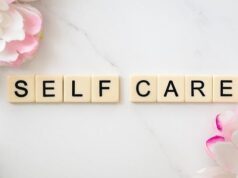Navigating the complexities of relationships can often feel like walking a tightrope, especially when it comes to the delicate issue of entangled commitments. When it comes to wanting someone who is already in a relationship, the emotional landscape can become murky and fraught with moral considerations. It’s a scenario that raises questions about loyalty, attraction, and the potential for new beginnings at the expense of existing ties. In this exploration, we will delve into the nuances of relationships, examining the dynamics that may fuel the desire for a partner who is already committed. Understanding the layers of connection, both emotional and social, is essential for anyone contemplating such a challenging and often controversial path. Whether driven by genuine love or fleeting infatuation, discerning how to approach this situation requires careful thought and consideration of the consequences that may unfold.
Understanding the Emotional Landscape of Infidelity
Infidelity often emerges from a complex web of emotional dissatisfaction, unmet needs, and the allure of new connections. Understanding these emotional triggers can provide crucial insights into the reasons behind such choices. Many individuals find themselves in illicit relationships due to feelings of neglect, unfulfillment, or the thrill of forbidden love that seems more exciting than their current partnership. Recognizing how these factors play into the context of a man’s marriage can be pivotal. Important aspects to consider include:
- Communication gaps between partners
- Lack of emotional intimacy with the spouse
- Desire for validation and attention
- Longing for adventure and new experiences
Moreover, it is essential to appreciate the psychological effects of infidelity on both parties involved. The aftermath often leaves a trail of emotional turmoil, as the betrayed partner grapples with feelings of inadequacy and loss, while the one engaging in the affair may experience guilt, anxiety, and confusion. Navigating this emotional landscape requires self-awareness and introspection. Those seeking to foster an emotional connection may inadvertently find themselves playing a central role in the emotional upheaval of a marriage. Elements to ponder in such situations include:
- Consequences of emotional attachment before the physical
- Awareness of potential outcomes for all involved
- Ethical considerations in pursuing an affair
- Impact of personal motivations on existing commitments
Recognizing the Signs of a Strained Marriage
It’s essential to be aware of the subtle yet telling signs that a marriage may be under strain. Couples often experience a gradual decline in communication and emotional connection, which can manifest through various behaviors. Look for indications such as:
- Increased conflict: Frequent arguments over trivial matters may signal deeper issues.
- Lack of intimacy: A noticeable decrease in physical affection can indicate emotional disconnection.
- Avoidance: Partners may start spending more time apart or showing disinterest in each other’s lives.
Moreover, the tone of conversations can shift dramatically, with an increase in criticism or defensiveness taking center stage. Recognizing these behaviors is crucial as they may lead toward a pivotal breakpoint in the relationship. Consider the following signs:
- Emotional withdrawal: One partner may become inaccessible or unresponsive during discussions.
- Loss of shared interests: Activities once enjoyed together may fall by the wayside, replaced by individual pursuits.
- Feeling trapped: Expressions of helplessness or resignation about the relationship can reflect deeper dissatisfaction.
Establishing a Genuine Connection Without Pressure
Building a connection with someone often flourishes in an environment free from undue stress. To cultivate a genuine rapport, it’s crucial to allow feelings to develop naturally rather than forcing interactions. Emphasizing comfort and trust can significantly reduce pressures that might otherwise inhibit openness. Focus on shared interests and mutual respect, which can lead to more meaningful conversations. Here are some strategies to foster this atmosphere:
- Active Listening: Show genuine interest in what he shares, making him feel valued.
- Shared Experiences: Engage in activities that both of you enjoy, creating lasting memories.
- Honesty and Transparency: Be open about your intentions and feelings, encouraging him to reciprocate.
As you navigate this delicate process, remember that vulnerability can foster deeper connections. By acknowledging emotions and uncertainties without fear of judgment, you can create an environment of safety and encouragement. This approach allows both individuals to explore their feelings authentically, which can lead to a more profound bond. To nurture this connection, consider:
- Establishing Boundaries: Respect personal limits while expressing your own.
- Being Patient: Allow the relationship to progress at its own pace, avoiding rush.
- Encouraging Open Dialogue: Promote discussions about feelings and desires, allowing for honest exchanges.
Creating Captivating Conversations That Appeal to His Interests
Engaging someone in a conversation requires a deep understanding of their interests and what makes them tick. To draw his attention, start by referencing topics he is passionate about. Consider asking open-ended questions that invite him to share his thoughts and feelings. Incorporate subjects such as:
- Hobbies: “What do you love to do in your free time?”
- Travel: “If you could go anywhere in the world right now, where would you choose?”
- Books or Movies: ”Have you read any good books or seen any great films lately?”
By tailoring your conversation to his preferences, you not only spark his interest but also create a comfortable atmosphere that encourages openness. It’s vital to listen actively and respond with genuine curiosity, which will help build rapport. As he opens up, delve into energizing discussions about:
- Aspirations: “What’s a dream you’ve always wanted to pursue?”
- Current Events: “What do you think about the latest news regarding [specific topic]?”
- Personal Stories: “What’s a memorable experience that shaped who you are today?”
Navigating Boundaries: The Importance of Discretion
When it comes to matters of the heart, understanding and respecting personal boundaries is crucial. The intricate balance of emotions can often lead to complex situations, especially when there is a third party involved. Recognizing the significance of discretion is essential; it allows individuals to navigate their feelings while being mindful of the impact on everyone involved. It’s vital to create an environment where open and honest communication can flourish, ensuring that all parties are aware of their limits. A few key points to consider include:
- Assessing personal feelings: Reflect on your own emotions and intentions, ensuring they align with genuine expectations.
- Respecting existing commitments: Acknowledge the existing relationship and avoid crossing boundaries that could lead to hurt.
- Fostering trust: Build a rapport that emphasizes confidentiality, enabling honest discussions without fear of repercussions.
Discretion is not merely about keeping secrets; it’s an active choice to handle sensitive situations with care. It is essential to recognise the potential consequences of actions taken in the shadows. By embracing an ethical approach, one can thoughtfully navigate the complexities of attraction while ensuring that respect and sensitivity prevail. This involves:
- Timing and patience: Allow feelings to develop organically, rather than forcing a change that may lead to distress.
- Cultivating self-awareness: Understand how your actions could affect everyone involved, leading to more considerate decisions.
- Seeking mutual understanding: Aim for clarity in intentions with the other person, ensuring that both are on the same page.
Evaluating Your Intentions and Morality in the Situation
When navigating relationships, especially those that involve existing commitments, it’s crucial to take a moment to reflect on your intentions. Ask yourself what drives your desire to pursue this individual. Are you motivated by genuine feelings or are you seeking validation or excitement? Understanding your motivations can help clarify whether your actions align with your personal values. Consider these guiding questions:
- What do you hope to gain from this relationship?
- How would you feel if the roles were reversed?
- Are you willing to accept the emotional consequences of your actions?
This self-awareness can provide a moral compass as you proceed.
Morality in these situations often hinges on empathy and the impact of your choices on others. In assessing your stance, ponder how your actions might affect not only the individual you are interested in but also their spouse and any children involved. This situation poses ethical dilemmas that require you to weigh the outcomes against your intentions. Reflecting on the following aspects can help guide your moral judgment:
- Are the potential outcomes justifiable by your intentions?
- How would you feel if someone were trying to disrupt your own relationship?
- What is the long-term impact of your decision on all parties involved?
Taking the time to think through these elements can foster a deeper understanding of the moral implications of your desires.
Crafting Environments that Spark Meaningful Interactions
Creating an atmosphere that fosters genuine connections requires careful curation of both space and experience. Well-designed environments not only encourage creativity but also facilitate deeper interactions among participants. Consider the importance of comfortable seating arrangements, ambient lighting, and accessible crafting materials. When crafting spaces are organized into distinct zones based on activities, individuals feel more inclined to engage freely. These zones act as invitations for collaboration, making it easier to share not just tools, but also ideas and emotions.
Moreover, integrating elements that resonate on a personal level can enhance these interactions significantly. Incorporate personalized decorations or memory-triggering objects that spark conversation, while also nurturing a sense of belonging. Establishing a social table where people can come together to discuss projects or troubleshoot challenges promotes a communal feel. Engagement thrives in environments that are both welcoming and rich in opportunities for connection, empowering individuals to explore their creativity collectively while forging meaningful relationships.
Supporting His Emotional Needs During Turbulent Times
During challenging phases of life, it’s essential to create a safe space where he feels free to express his feelings without judgment. Effective emotional support can involve active listening and validating his experiences. Consider the following approaches to foster that needed environment:
- Be Present: Sometimes, just being there is enough. Offer your physical presence and let him know you’re available to listen when he’s ready to talk.
- Ask Open-Ended Questions: Encourage deeper conversations by asking questions that prompt him to share more about his feelings and thoughts.
- Show Empathy: Acknowledge his emotions and let him know that it’s okay to feel vulnerable during difficult times.
Additionally, it’s crucial to respect his autonomy and avoid the temptation to rush him into decisions. It’s a delicate balance of being supportive while also giving him the freedom to process his emotions at his own pace. Here are some ways to maintain this balance:
- Encourage Reflection: Gently prompt him to reflect on his situation, helping him gain clarity without pushing him toward a specific outcome.
- Provide Reassurance: Let him know that he’s not alone in this journey and that you’re there to support him regardless of the choices he makes.
- Be Patient: Understand that emotional turmoil can take time to resolve, and being patient shows that your support is genuine and unwavering.
Recognizing the Consequences of Pursuing a Relationship
Pursuing a relationship with someone who is already committed can have significant emotional consequences. For the person on the outside, the thrill of potential romance may initially outweigh the complications involved. However, as the reality sets in, the emotional toll can become evident. Feelings of guilt and betrayal ripple through the lives of everyone involved, not just the spouses. It often results in a fragmented emotional state where anxiety, frustration, and self-doubt are commonplace as one grapples with the ethical implications of their actions.
Moreover, engaging in such relationships can lead to a sense of isolation from friends and family, who may disapprove of the situation. This disconnection can deepen feelings of loneliness and despair. As the dynamics shift, one might experience increased stress and even moments of acute sadness, which can adversely affect mental health. The quest for love may cause individuals to overlook the foundational aspects of healthy relationships, ultimately leading to a cycle of emotional turmoil that could have been avoided.
Preparing for Potential Outcomes and Reactions
Before delving into the complexities of interpersonal relationships, it’s crucial to understand that feelings and emotions can produce unpredictable outcomes. When attempting to change someone’s commitments, you must prepare for a variety of potential reactions, as each individual is influenced by their own values, experiences, and circumstances. Here are some possible responses to consider:
- Resistance: He may feel defensive and resistant to the notion of leaving his spouse.
- Guilt: Emotional attachments can lead to feelings of guilt, especially if children are involved.
- Indecision: He might experience confusion about his feelings and the consequences of his choices.
Furthermore, you should contemplate the broader implications of your actions, not just on him but also on any third parties involved. Engaging in open, honest dialog is essential to understand his perspective, allowing room for reflection and decision-making. Expect a range of behaviors from support to hostility, and be ready for each scenario. You may encounter:
- Open Communication: He may appreciate transparency and engage in discussions about his needs.
- Emotional Turmoil: Expect emotional reactions that can complicate interactions.
- Re-evaluation: He may take time to reconsider his priorities and relationships.
Fostering Healthy Communication to Open Doors for Honesty
Effective communication is the cornerstone of any relationship, and it becomes crucial when navigating complex emotions and situations. To foster an environment where honesty can flourish, it’s essential to create a safe space for dialog. This involves actively listening without judgment, which encourages the other person to express their true feelings. It’s also important to practice empathy, as seeing the situation from their perspective can enhance understanding and reduce defensiveness.
Additionally, establishing clear boundaries can help both partners feel secure in sharing their thoughts openly. Regularly engaging in open discussions about feelings, expectations, and concerns can build trust over time. Implementing strategies such as using “I” statements (e.g., “I feel…” instead of “You always…”) can shift the focus from blame to personal experience, making conversations less confrontational. By prioritizing these communication methods, the door to honesty and vulnerability is more likely to be opened, fostering a deeper connection.
Concluding Remarks
As we draw this exploration to a close, it’s essential to reflect on the complexities surrounding the desire to pursue a relationship with someone already committed. Navigating such paths can lead to emotional turmoil for all parties involved. It’s crucial to prioritize integrity and empathy, understanding that relationships thrive on respect and mutual consent. Rather than focusing solely on outcomes, consider the importance of fostering connections built on honesty and authenticity. Ultimately, the journey of love is not merely about winning someone’s heart but also about ensuring that everyone involved can find happiness and fulfillment, regardless of the choices made.




